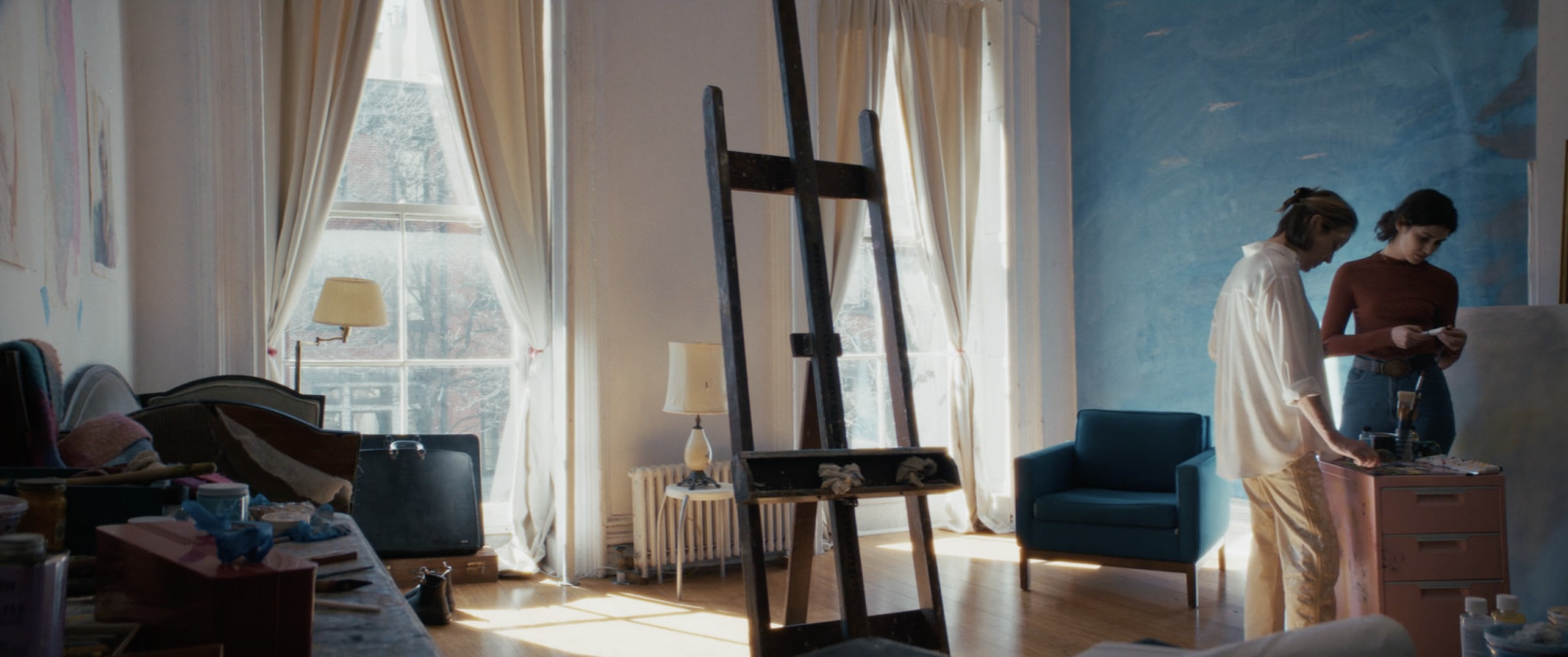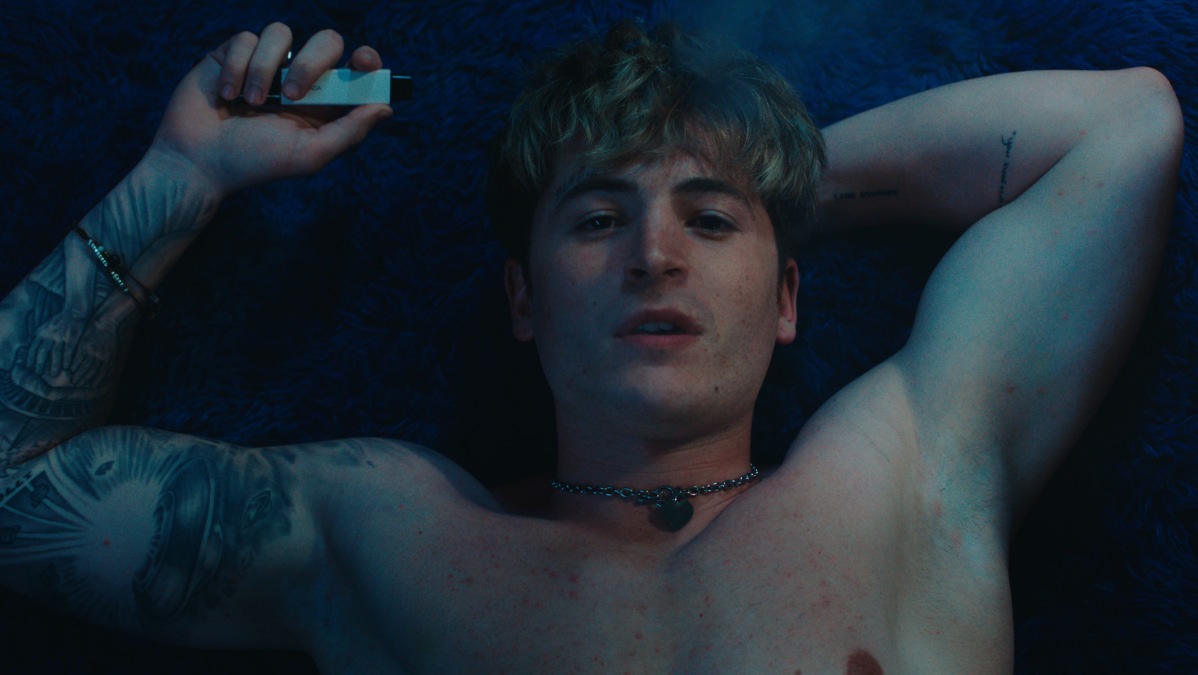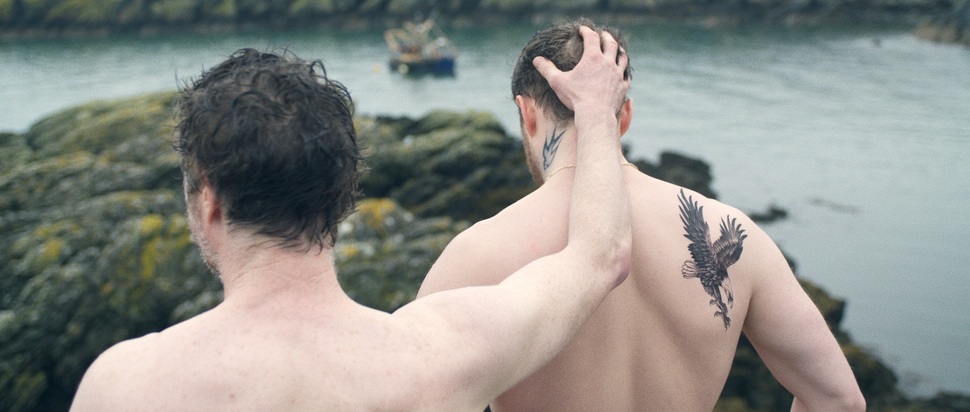Queer Me Out: new queer cinema at Edinburgh Film Festival
Four out of the ten films competing in this year's Sean Connery Prize for Filmmaking Excellence at EIFF concern LGBTQ+ themes. We speak to these films' directors to explore what their work reveals about queer indie cinema in 2025
Film festivals can act as barometers for assessing the health of indie filmmaking. Read any critic's report on the competitions at Cannes or Berlin and you’ll find them prognosticating on the upcoming fortunes of the industry like they’re tasseographers examining a teacup. What will the diagnosis be based on the ten films competing for the top prize at this year’s Edinburgh International Film Festival? All are world premieres, so their qualities will not be known for a few more weeks, but one thing is certain from reading the films’ loglines in the brochure: they’re kinda gay.
A significant proportion – four of the ten – explore LGBTQ+ themes. Campbell X’s Low Rider is a lyrical road movie following two Black queer strangers as they drive across South Africa on a picaresque adventure of self-discovery. On the Sea, the second feature from Helen Walsh, is a rough-hewn coming-out drama centred on a stoic middle-aged fisherman. In Transit, from American filmmaker Jaclyn Bethany, has a superficially similar premise to On the Sea, but with the genders switched. And Elliot Tuttle's Blue Film is a tense, often troubling two-hander about a camboy who agrees to spend the night with one of his patrons.
Ahead of the festival, I spoke to Walsh, Bethany and Tuttle – Campbell X was unavailable – to explore any common threads in their film. Initially, though, I’m struck by the varied paths each walked before filmmaking. Walsh began her career as a celebrated novelist before transitioning to cinema with 2015's The Violators. Bethany started in theatre as an actor. And Tuttle’s initial ambition as a young cinephile was to be a film critic on YouTube before he realised he’d prefer to make movies. Similarly diverse are their filmmaking styles, although that shouldn’t be a surprise. Queer cinema isn’t, after all, a monolith. You’ll often see it discussed as if it were a genre, with rigid formats or markers, but as this quartet demonstrates, a queer film can be any kind of movie.
Walsh’s background is literary, but she explains that her starting point for On the Sea was visual. She knew it had to be set in a parochial, coastal town. “I think I've always been fascinated by how certain places give rise to certain cultural and social precepts and values,” she tells me over the phone from her home in Merseyside. “And those, in turn, give rise to these very idealised expressions of how one should live one’s life.” Once a setting was in mind, the central character of Jack came into focus. “I knew he was going to be a fisherman, and he grew from this very loose idea of a morally good man who's trapped by place, by his upbringing.”
The film was five years in the making, but most of that time was Walsh trying to settle on the right location. “I spent quite a lot of time in the Isle of Man, in the kipper smokehouses in Peel, then up in Oban, in Scotland. But it was only when I found the mussel beds of the Menai Strait in Anglesey that the story really started to take shape. I'd say I spent about three years just trying to find that place and that industry, and then it took me about two months to write it.”
What was it about mussel farming that made everything click? “I think it was just seeing these huge hulks of masculinity in the shallows, working in these really fast, furious tides. They almost looked like these statues in the sea. It just seemed such a tough and lonely profession.”
The "hulk of masculinity" at the centre of the film is Jack, played by Barry Ward. “There's a sense that Jack could have lived his whole life unfulfilled without the events of this movie,” says Walsh. What unfolds is a heartbreaking story of a man who had locked away a part of himself since childhood. Jack knows that he’s gay but only acts on his feelings when he’s thrown together with Daniel (Lorne Macfadyen), a peripatetic fisherman from Scotland who’s a decade or so younger than Jack and has no hangups about liking men, although Walsh doesn’t put this down to age. “It’s the fact that Daniel is nomadic rather than younger that allows him a much freer relationship with his sexual identity,” she explains.
Her fastidious search for the perfect location has paid dividends: Jack feels indivisible from the salt-blasted landscapes in which he’s situated. “If Jack had been born 100 miles east in Manchester, or had he not been born into a family of fishermen, had he had the opportunity to leave his coastal community, go to uni, I think things would have turned out very differently for him. I find that unbearably sad.”

In Transit is also set within a small community and concerns a character going through a sexual transformation, but it couldn’t look more different. The script was written by Alex Sarrigeorgiou, who also stars as Lucy, a young bartender from rural Maine who seems to be in a contented relationship with her chef boyfriend. Things get confused, however, when she begins to pose for Ilse (Jennifer Ehle), an older artist who’s in a creative slump and visiting town on a retreat.
“I thought Alex’s script was beautiful and complex,” says Bethany when I ask what drew her to the project. “It was so interesting to see two women of different ages and backgrounds leading a story like this.” Bethany felt a deep connection to both characters. “Lucy is from a small town, sort of like me, and is very dedicated to her family and her job and the place she's from, and Ilsa is an artist questioning if she should make art, to which I can also relate.” But she also reckons the film digs into more universal truths. “To me, it questions what it is to be a woman? What is it to want something you didn't know you wanted before?”
In Transit is a much more guarded, mysterious work than On the Sea. We instantly feel the charge of attraction between Jack and Daniel. Lucy and Ilsa’s chemistry is trickier to gauge, especially as Bethany shoots their most intense interactions as wide shots. “In those key scenes in Ilsa’s studio, I was interested in getting the whole point of view,” she explains, “the whole picture, like you're looking at a piece of art.”
Similar to Jack, Lucy and Ilsa are characters who want more; they just don’t realise it until somebody new comes into their lives. “[In Transit] holds a mirror up to some deep psychological questions around relationships and intimacy and sexuality,” explains Bethany. “I think it also shows that even a small moment in your life can irrevocably change you.”
In Transit is a quiet, nuanced drama, where emotions often go unsaid and its most passionate moments are elided. It's fair to say that Tuttle delivers something more confrontational with Blue Film. How could he not, given he came up with the premise while exploring the back catalogue of French filmmaker Catherine Breillat, modern cinema’s great chronicler of transgressive desires?
“I remember I was watching A Real Young Girl, 36 Fillette and Brief Crossing…” recalls Tuttle. “So many of her movies are about adolescent sexuality, and they got me thinking about myself when I was 12 or 13. And I was thinking about how when I was that age, I had this teacher in middle school that I think, in my head, I genuinely wanted them to have sex with me.”
That was as far as the adolescent crush went, but Briellat’s provocative films got him thinking: what would be the logical endpoint of that fantasy? “It just felt like material that might be rife with drama, and a good way of channelling some of my thoughts about sex, and this idea of a loss of innocence, which I think is central to the film.”

Blue Film opens with camboy Aaron Eagle (Kieron Moore) greeting his followers with a cherry direct-to-webcam address of “What’s up faggots?” He then continues to berate his “pay pigs” while flexing his muscles. All the while, token payments flood in at the bottom of the screen. The rest of the film takes place within a house rented by Hank (Reed Birney), one of those “pay pigs,” who’s paying $50,000 for the pleasure of Aaron’s company for one night.
Hank is initially a mystery, not least because he wears a balaclava. He doesn’t appear to want anything sexual from Aaron; he only wants to ask him questions, which must be answered honestly. But it soon dawns on Aaron that Hank knows too much about his previous life as a shy schoolkid to be an anonymous stranger. To reveal Hank’s exact connection to Aaron’s past might ruin some of Blue Film’s shock and awe, but it’s safe to say both men are wearing masks.
“This character of Hank is really only himself when he's in voyeur mode,” explains Tuttle – the troubling reason for this becomes clear in the film. “And Alex is also playing this hyper-masculine cliché – I'm sure anybody who has ever watched gay porn has seen this archetype. These modes are not who they are, but they play into them to get some satisfaction, and I think a lot of the conflict in the movie happens when Aaron becomes vulnerable to Hank's line of questioning. So a lot of the conflict in the movie stems from their roles being broken down. That was something that I thought about a lot while writing, the way that the parts that we play, as gay men, make us feel safe.”
With such an abundance of queer work in competition, one might assume getting films with LGBTQ+ themes financed is relatively easy in 2025. That certainly wasn’t Walsh’s experience. “Well, my producers were hugely supportive,” she recalls, “but very early on, the script was shared with a couple of British sales agents, and the consensus was they already had enough gay films. One of them said, 'There are already two coming out films this year.'” Walsh was furious. “If I'd made another hetero meet-cute film, or another hetero coming-of-age film, I don't think there'd be an issue.”
Tuttle worries that the pushback he might face will be from gay audiences, given he’s exploring dark, taboo subjects “I think people are hesitant about sending the wrong kind of message out about the queer community, especially during this time in America, when we're facing a conservative cultural resurgence.”
This rings true. It’s not uncommon for LGBTQ+ films to receive fierce censure online if they don’t spark queer joy. See the criticism levelled at recent titles like Femme (too problematic), All of Us Strangers (too depressing) or Queer (both). “It's not that I'm necessarily against the idea of queer joy,” says Tuttle, “but I do feel a certain adverse reaction whenever anyone on Twitter is like, 'Why do all gay movies have to be sad?' I have a huge community of people around me who are constantly rewatching the more dangerous queer films from Pasolini or Fassbinder or people like that. There's a huge appetite for subversive, dangerous cinema that I think the current landscape is not really feeding.”
It's understandable that queer filmmakers might feel pressure to consolidate the image of their community given how LGBTQ+ rights are under attack from governments on both sides of the Atlantic, but for Tuttle, this attitude is flawed. “Being queer has always been about being yourself and talking about things openly,” he says. “I'm just trying to make a movie that I like, that resonates with me, and hopefully resonates with an audience of people.”
Edinburgh International Film Festival runs 14-20 Aug
Blue Film screens 16, 17 & 18 Aug; In Transit screens 17, 18 & 19 Aug; Low Rider screens 17, 18 & 19 Aug; On the Sea screens 16, 17 & 18 Aug
